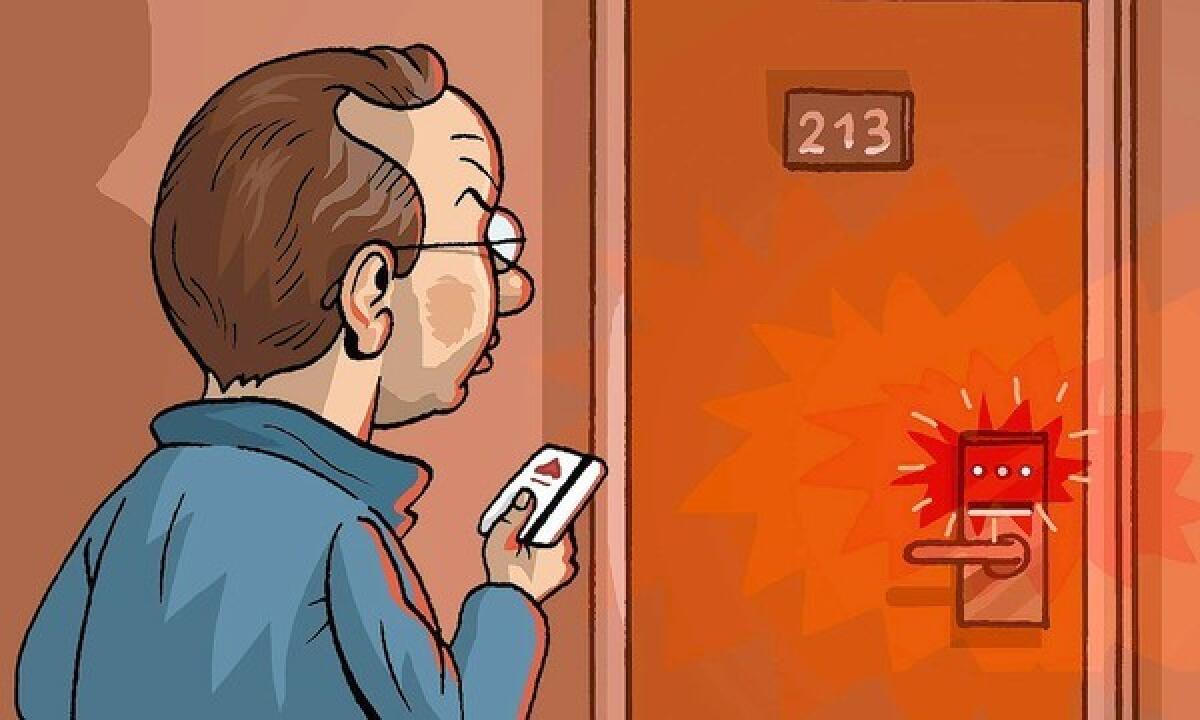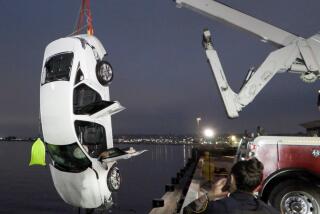On the Spot: Locked out, and nobody’s home

Question: In July, my wife and I stayed at the Carmel Oaks Inn & Suites in Carmel. Our room keys didn’t work, so we got two more. When we returned from dinner about 10:45, those keys didn’t work either. The front desk was closed. There was a “hot line” phone on the wall outside, but no one answered. We called the Carmel police, and they got us a room, at 1 in the morning, at another hotel. The owner agreed not to charge us for the night we didn’t stay in the hotel but would not reimburse us the $150 we spent at the other hotel. I contacted Choice Hotels headquarters, but they said it’s a local matter because this was a franchise operation. Can you help us?
Mike Dannan, Tustin
Answer: After we raised the issue with Choice Hotels, Dannan was promised the $150 reimbursement.
Travel attorney Alexander Anolik told me that the decision to reimburse Dannan was a no-brainer. “It’s not even a question,” Anolik said. “They have to get him a habitable place, so whether the roof leaked above his head or they locked him out, it’s a breach of contract.”
I also asked Choice whether the guest could have done something differently, and why this happened. David Peikin, senior director of corporate communications for Choice Hotels International, replied, ever so briefly, “We believe the guest did the right thing. Mistakes sometime occur.”
Yes, they do. Many travelers who have used those magnetic stripe key cards — and most hotels nowadays employ them — have returned to their room and swiped their card, only to see the little red “no entry” light. There are varying theories for why this happens. Some say it’s operator error; that is, the desk clerk did not encode the card properly. Others say it could be a malfunction of the door’s card reader. Still others say the cards become “demagnetized,” a claim that at least one card manufacturer rejects. The magnetic strips on bank cards, for instance, are “stronger” than those on hotel key cards, which don’t generally meet international standards, but those lesser strips should still maintain the data entered on them; others disagree.
Uh-oh. I just said the D word, as in “data,” which will set off another round of worrying about what information is on hotel key cards. The answer: Some numbers that should unlock your room may be encoded, but those cards do not include, as was widely rumored some years ago, your credit card number, your home address, your Social Security number or any other sensitive information. That urban myth has taken years to debunk.
In the future, you may not have to worry about those blasted key cards. Instead, your phone may be the key to getting into your room. Assa Abloy AB of Sweden, a large maker of door locks, is testing a program that uses near-field communication, which the company describes as a “short-range wireless communication technology standard” that lets you check in, using your phone, before you arrive and sets up your phone as the key — albeit a digital one.
This is still a way off, so absent that, a night manager who answers the phone and/or a headquarters that responds to a customer’s concerns will have to suffice. And there’s no technology that can substitute for that.
Have a travel dilemma? Write to travel@latimes.com. We regret we cannot answer every inquiry.
More to Read
Sign up for The Wild
We’ll help you find the best places to hike, bike and run, as well as the perfect silent spots for meditation and yoga.
You may occasionally receive promotional content from the Los Angeles Times.







